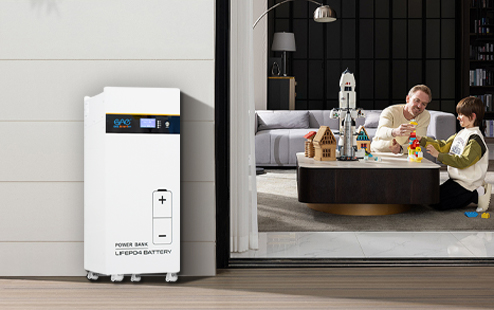With increasing demand for renewable energy, more homeowners are looking at alternative solutions as a way to become less dependent on the grid, save money on energy bills, and lower their carbon emissions. Setting up a solar energy system with batteries is one of the best ways to accomplish this. The word “combined” indicates a combination of solar inverter with battery storage, with multiple benefits that come along with it, and ultimately incorporating your home energy efficiency, energy independence or alternate energy sustainability. This blog discusses the key advantages of integrating solar inverter with battery storage in your home.

The ability to be energy independent is one of the greatest advantages of a solar inverter with storage. Combined power generation Traditional energy grids rely on centralized power plants, many of which are powered by fossil fuels. This has left homeowners exposed to energy price fluctuations, blackouts, and even power shortages at peak demand times.
Investing in solar energy with battery storage allows you to produce your own electricity, and store the excess for future use. This decreases your dependence on the grid, so you can keep the lights on during outages or when solar generation is low, like at night or on cloudy days. Battery storage allows you to save the excess energy collected on sunny days and use it in the evening or when energy demand is at peak hours. This gives peace of mind and more importantly lessens the burden of more expensive electricity bills.
As electricity costs continue to rise and energy prices remain volatile, homeowners are seeking ways to minimize their monthly energy costs. This problem is solved by a solar inverter with a battery storage.
Solar panels do their thing during the day, while your solar inverter turns that produced DC energy into passable good AC energy for your home. If there is any excess energy that is not being used, it will be stored in the battery. At night, for example, or even during peak demand times when energy from the grid is expensive, you can use energy stored in the battery rather than pay much higher prices for power from the grid. In the long term, reducing grid energy consumption leads to lower monthly energy bills that can add up to substantial dollars.
In some places, you may also be entitled to net metering, which lets you return excess energy your solar system generates into the grid and get credit or compensation from your utility provider. Providing extra savings or even a stream of income, further maximizing the return on investment for your solar system.
Solar inverter with battery storage also has a very significant advantage where you are able to self-consume more of the energy produced by your solar panels. Without battery storage of your own, any excess energy the solar panels produce during the day is wasted unless you send it back to the grid. A battery storage system allows you to store that extra energy for later use at night when the sun has gone down.
This extra self-consumption maximizes the value of your solar energy and helps you rely less on grid energy. The more energy you can both store and draw upon from your own system, the less energy you’re paying for from the utility, resulting in your solar investment being more cost-effective and sustainable for the long haul.
Long power cuts can be a big inconvenience, especially vulnerable during extreme weather situations or in willingly unstable grids. A solar inverter with battery storage allows you to use battery backup power if you experience an outage, which helps ensure your home will always be powered, even if the grid isn’t.
When the grid goes down, the battery storage solar inverter can automatically identify the outage and unplug itself to continue to provide your home power from the energy stored in your battery. This capability is called islanding, and it is unsurprisingly especially useful during blackouts or when a storm renders power unavailable for long periods of time. Having this system you can also power essential devices such as refrigerators, lights, and communication tools and gives safety and convenience in a disaster.
Transitioning to solar energy with battery storage is one of the best things you can do to reduce your carbon footprint. Traditional power generation is primarily based on fossil fuels, responsible for greenhouse gas emissions, air pollution, and climate change. Generating clean, renewable energy through solar and storing it for later use through battery along with this contributes to reducing the demand for fossil-fuel-based electricity for a cleaner and greener sustainable future.
Finally, a solar inverter with battery storage contributes to energy security by diversifying your energy sources. With this system in place, you are less reliant on the grid and have a dependable, renewable energy source right at home. This makes your home more resilient to future disruptions in the energy market, whether they are caused by price increases, natural disasters, or other factors that can affect grid stability.
One-inverter’s solar inverter with battery storage is a smart and forward-thinking investment for homeowners who want to take control of their energy use, reduce costs, and support a sustainable future. From providing energy independence and backup power during outages to maximizing energy efficiency and supporting the environment, the benefits of solar energy storage are numerous. As technology continues to improve and the world shifts toward renewable energy, integrating a solar inverter with battery storage into your home is a decision that offers both immediate and long-term rewards.